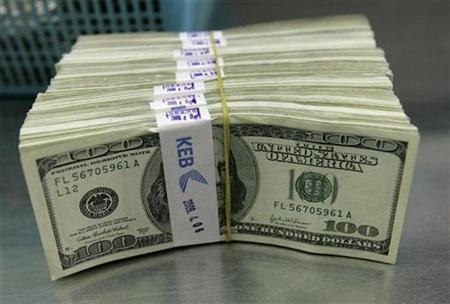Kenya is on the rise in the economic sector according to a recent report, and is likely to beat African economic giants like Nigeria, South Africa and Egypt, who have been on a stumble recently.
The study carried out by global risk consultancy firm, Control Risk, and a global forecasting and quantitative data analyst firm, Oxford Economics, shows that rising security risks and political instability in Egypt, economic downturn and militancy in Nigeria and escalating political risks in South Africa led to doubts whether the balance between risks and opportunities in these markets is still favourable for businesses. Despite recent recovery in Nigeria and South Africa, Kenya and Ethiopia might soon outshine these heavy-hitters in the competition for investment.
According to the report, Africa Risk-Reward Index, Kenya has achieved a period of strong GDP growth amid relative political stability. Real GDP growth averaged 6.0% in 2010-16. The 2017 growth forecast is at 5.4%.
“The country’s reward score is 6.7 (out of 10). A well-educated workforce and an innovative services sector, the government’s continued investments in upgrading critical national infrastructure, and deepening integration with its neighbours through the East African Community (EAC) all allow the country to act as a gateway into the larger East Africa region. Current fiscal concerns and a political system that remains closely tied to ethnic affiliation contribute to a risk score of 5.6 (out of 10) and reflects considerable room for improvements,” stated the report.
Nigeria and its energy sector are too big to lose their appeal – with a reward score is 6.0, ahead of South Africa and Egypt who have 4.6 and 5.5 respectively. South Africa’s risk score of 5.0 remains below the region’s average, with Ethiopia, Nigeria and Egypt hitting a risk score of 5.8, 7.3 and 6.0 respectively.
ALSO SEE: Sanlam Kenya bullish on economy despite election jitters
Ethiopia outperforms every African peer with its high reward score of 8.0, followed by Kenya at 6.7. Nigeria comes third at a reward score of 6.0 closely followed by Egypt at 5.5. South Africa trails its peers at 4.6, despite enjoying a deserved reputation as Africa’s pre-eminent constitutional democracy.
South Africa’s woes are attributed to weakened key institutions over the past decade. Economic prospects are closely linked to the outcomes of the ANC’s national conference in December. The forecasted real GDP growth of 0.5% for 2017 is below population growth and certainly insufficient to reduce South Africa’s staggering 27.7% unemployment rate.
Oil-rich Nigeria
In oil-rich Nigeria, President Muhammadu Buhari’s government struggles through its first term. A fall in oil prices and lower production due to insurgent attacks in the Niger Delta have slashed growth from 6.3% in 2014 to 2.7% in 2015 followed by a sharp contraction of 1.6% last year. Economic indicators for this year are more favourable, but still the report forecasts a real GDP growth of only 1.1% in 2017.
Egypt will test the most ardent optimist. President Abdul Fatah al-Sisi’s political position is stable, despite a series of economic and security challenges. Socio-economic grievances, a government crackdown on opposition and Islamist groups, and persistent militancy will continue to have an impact on the business environment with the tourism sector remaining depressed. Real GDP growth is expected to slow in 2017 (to 3.8%, from 4.3% in 2016) owing to a slowdown in government and private consumption.
The best performing Ethiopia attracted Ksh320 billion ($3.2 billion) of foreign direct investment in 2016. The East African nation is one of Africa’s fastest growing economies and continues to offer strong prospects. Growth averaged 10% from 2010 to 2015 and although 2016 growth was slower at 6.5% the expansion remains impressive.
However, the omnipresent role of government in the economy raises concerns relating to public sector efficiency and financial management. External debt is expected to increase to 38.7% of GDP by the end of this year.
“Experienced investors – not only in Africa, but around the world – know that risk and reward are close companions. While no serious investor should overlook the economic giants of the continent, real competitive edge can only be achieved when investors manage to stay ahead of the pack in knowing what’s next,” concluded Paul Gabriel a Senior Analyst and a lead-author of the report.













Leave a comment